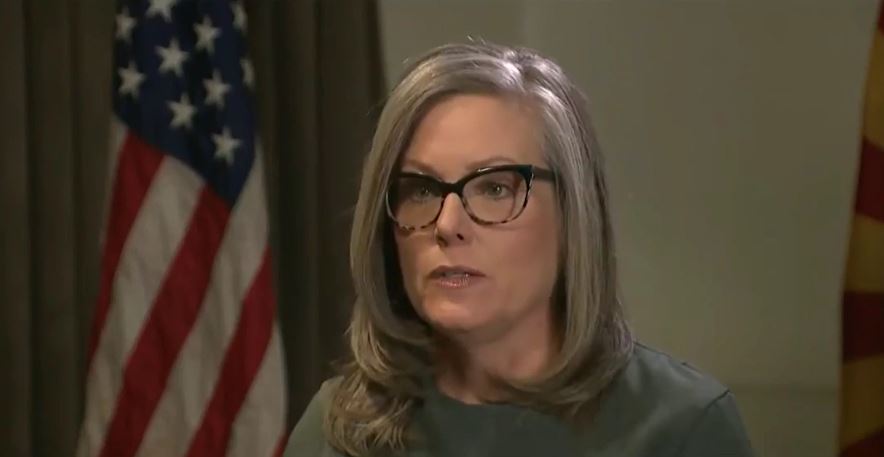
by Jonathan Eberle | Sep 7, 2025 | News
By Jonathan Eberle |
A meeting on September 3rd brought together families, law enforcement officials, prosecutors, tribal leaders, and child welfare advocates to address systemic failures in the state’s child welfare system. Recent tragedies involving children in group homes have drawn attention to gaps in oversight, including inconsistent coordination with law enforcement when youth run away from facilities, breakdowns in communication with tribal governments, and limited transparency around licensing actions.
Now, following the stakeholder meeting convened by State Senator Carine Werner (R-LD4), the Arizona Department of Child Safety (DCS) has committed to a series of reforms aimed at strengthening oversight and improving child protection. The announced set of immediate measures from DCS include:
- Clearer notification rules: Drafting changes to require group homes to alert DCS and law enforcement promptly when a child leaves placement.
- Stronger law enforcement partnerships: Sharing group home locations with local police to encourage proactive engagement with staff and residents.
- Critical information packets: Creating standardized “face sheets” for law enforcement to use when a child runs from a facility.
- Renewed tribal engagement: Re-establishing standing meetings with the San Carlos Apache Tribe and extending outreach to other tribal nations.
- Licensing transparency: Developing a process to share licensing actions with tribes that contract with DCS-approved facilities.
Senator Werner emphasized that while the commitments mark progress, long-term accountability remains essential.
“This is a step in the right direction, but it can’t be the last,” Werner said. “Arizona’s children deserve a system that responds quickly, communicates clearly, and puts their safety first. I will keep working with stakeholders and holding DCS accountable until we create a system that best serves families and kids throughout Arizona.”
Werner credited the families, law enforcement agencies, and tribal leaders who participated in the discussion, noting their input directly shaped the reforms. The changes come amid growing scrutiny of Arizona’s child welfare practices, with lawmakers and community advocates pushing for stronger safeguards to protect vulnerable children in state care.
Jonathan Eberle is a reporter for AZ Free News. You can send him news tips using this link.

by Jonathan Eberle | Aug 24, 2025 | News
By Jonathan Eberle |
The Arizona Senate will host the concluding session of the Joint Legislative Ad Hoc Committee on Family Court Orders on Wednesday, August 27, at 9 a.m., with parents and families invited to share personal testimony about their experiences in the state’s family court system.
Committee Chairman Mark Finchem announced that the hearing, to be held in Hearing Room 1 at the State Senate, will feature testimony from the public alongside a presentation from the Arizona Department of Child Safety (DCS). The department is expected to outline its role in custody cases, child welfare matters, and its interactions with court orders.
Finchem emphasized that the hearing marks the culmination of a series of statewide meetings aimed at collecting information and input from Arizonans affected by family court proceedings. He said the committee intends to use the findings to guide potential legislative reforms during the next session.
“The final hearing is one you won’t want to miss,” Finchem said in a statement. “If you have been impacted by the family court system or a judge has threatened you with a gag order, I strongly encourage you to come forward and share your story. This is your opportunity to provide fact-based testimony directly to lawmakers before the committee concludes its work.”
In addition to public and agency testimony, the hearing will feature a guest speaker involved in federal family court reform initiatives. Organizers say this perspective will provide broader context on efforts to increase accountability and transparency in courts handling child custody and welfare cases.
Lawmakers on the committee have framed the series of hearings as an opportunity to define the oversight responsibilities of state agencies and ensure that the family court system is responsive to the needs of Arizona families. The session will run from 9 a.m. to noon.
Jonathan Eberle is a reporter for AZ Free News. You can send him news tips using this link.

by Daniel Stefanski | Feb 7, 2025 | News
By Daniel Stefanski |
A powerful Arizona legislator is continuing to shine the light on the governor’s reported shenanigans with the state’s finances.
Earlier this week, Arizona State Senator T.J. Shope introduced SB 1612 “to hold the Executive Branch accountable and prevent any future conflicts of interest from arising within the state procurement process” by “remov[ing] an exemption allowing the Arizona Health Care Cost Containment System (AHCCCS) to create their own procurement code.” The bill would also “prohibit an agency and state employees from destroying notes and documents created during a request for proposal (RFP) [and] require anyone responding to a state issued RFP or applying for a state administered grant to disclose any donations made to the Governor and campaign affiliates.”
Arizona Senate President Warren Petersen is a cosponsor of the legislation.
The need for this bill, according to Shope’s press release, became heightened after “an administrative law judge concluded AHCCCS improperly awarded contracts for healthcare services for 26,000 elderly and physically disabled individuals enrolled in the Arizona Long Term Care System…based on several factors, including violations of statutes and rules by AHCCCS, prejudice, a lack of transparency, contract awards based on best interests of the agency and not the state, an arbitrary and flawed ranking system of bid proposals, as well as deceptive criteria provided by AHCCS to health care companies on the evaluations of their bid proposals.”
In a statement accompanying the announcement of his bill, Senator Shope said, “The Hobbs Administration has a track record of engaging in questionable and unethical practices where favoritism is given, using taxpayer dollars, to those who are close to or have provided benefits to the Governor, her cabinet, and her allies. This legislation should help address these scandals and prevent future unfair advantages from being provided. Arizonans expect their elected officials to make decisions based on what’s best for the state and its citizens; not what’s best for their own personal agendas and political bank accounts.”
Last year, The Arizona Republic broke a story about the Arizona Department of Child Safety “approv[ing] what amounts to a nearly 60% increase in the rate that Sunshine Residential Homes Inc. charges to care for a child for a day.” The alleged action to approve the rate increase for the one organization was made while “DCS has denied pay increases to home operators and cut loose 16 providers during the contract renewal process.” The Republic also asserted that “no other standard group home provider was approved for any rate increase during Hobbs’ tenure.”
After the story ran in the Republic, Shope sent a letter on June 5 to both Attorney General Kris Mayes and Maricopa County Attorney Rachel Mitchell, asking both officials to “examine the facts surrounding the Department of Child Safety’s alleged decision to approve a nearly 60% rate increase for Sunshine Residential Homes and determine if conduct by any of the involved parties warrants a criminal or civil investigation.”
Daniel Stefanski is a reporter for AZ Free News. You can send him news tips using this link.

by Daniel Stefanski | May 18, 2024 | News
By Daniel Stefanski |
A Republican law to protect missing children in Arizona has been signed into law.
This week, State Representative Barbara Parker championed the success of her bill HB 2479, which will “provide for the establishment of a Missing, Abducted and Runaway Children Unit within the Arizona Department of Child Safety (DCS) if DCS fails to comply with statute; [and] revises various other requirements related to the recovery efforts for a child who is missing, abducted or runaway (disappeared)” – according to the overview provided by the Arizona House of Representatives.
Governor Katie Hobbs signed the bill into law on April 10.
In a statement to accompany her announcement about the bill signing, Parker said, “I couldn’t be prouder that HB 2479 has been signed into law. When I came to the legislature, I didn’t have any idea I would focus on this issue. Yet, two young women who went missing were eventually found dead in my district leaving members of our society shell-shocked and necessitating stronger interventions immediately. These tragic incidents make me determined not to forget or abandon even ONE child while serving in office since I have seen their heart wrenching consequences at close range.”
The Republican State Representative added, “The new statute will promote children’s welfare by holding its child safety systems accountable and significantly enhance our efforts at avoiding such misfortunes as well as assisting those affected families. I’m so grateful to my colleagues, Senator Farnsworth, and the foster care community who were involved in perfecting the legislation along the way. Thank you!”
Parker noted that her newly enacted bill “builds upon another law that she wrote last year, HB 2651, aimed at changing DCS’ reporting obligations when children go missing or are abducted or run away.”
Back in February, the bill passed the Arizona House with a bipartisan vote of 37-20 (with two members not voting and one seat vacant). After it was transferred to the state Senate, it was amended and passed with a 27-0 result (with three members not voting). The state House then concurred with the Senate’s changes with an overwhelming 46-12 tally (with two members not voting).
On the Arizona Legislature’s Request to Speak system, representatives from the EPIC Group and Arizona National Organization for Women signed in to support the proposal, while representatives from the Arizona Department of Child Safety and Arizona Association of Chiefs of Police indicated their neutral standing on the bill.
HB 2479 will go into effect 90 days after the conclusion of the 2024 Arizona Legislative Session.
Daniel Stefanski is a reporter for AZ Free News. You can send him news tips using this link.

by Terri Jo Neff | May 13, 2022 | News
By Terri Jo Neff |
The State of Arizona has paid roughly $6 million in the last three years to private law firms to defend the Arizona Department of Child Safety against multiple allegations of staff malfeasance and misfeasance leading to the neglect, even death, of children placed into the state’s foster care system.
In the meantime, concerns brought forth by the Arizona Auditor General’s Office in 2019 about foster home recruitment, licensure, use, and retention have not been fully implemented by DCS, and there won’t be another status report to the Arizona Legislature until later this year, according to public records.
A nearly 60 page special report to Gov. Doug Ducey and lawmakers in September 2019 outlined six recommendations for improvements within DCS for Arizona’s foster care system. One key area of concern was foster parents who reported feeling excluded from decisions about the children in their care as well as difficulty accessing needed support and pressure to accept foster placements.
There were also several instances in which foster parents complained of being provided “incomplete or inadequate” information about the children placed in their care, something auditors confirmed when reviewing placement packets as part of the audit.
In May 2020, the Auditor General’s Office provided lawmakers with an initial follow-up, at which time it was revealed DCS was still in the process of implementing five of the six recommendations. Steps to implement the sixth recommendation had not been started, according to the audit report, despite the fact it addressed one of the main complaints – the lack of customer service to improve foster parent recruitment and ensure retention.
Instead, DCS was concentrating on developing and launching of Guardian, its much needed new agency-wide database. But when Guardian went live in February 2021, state employees closed off some features of the system to other state agencies, including the State Foster Care Review board and the Arizona Ombudsman’s Office.
In addition, there were numerous complaints from foster parents, adoptive parents, and foster children transitioning out of foster care about late payments for several weeks after Guardian went live.
A November 2021 “second follow-up” report by the Arizona Auditor General at the 24-month period did not get into those problems. Instead, the report to the chairs of the Joint Legislative Audit Committee remained focused on the six recommendations from 2019, of which DCS had fully implemented only 50 percent.
And there was still had no start date in sight for implementing an improved customer service model, according to that report.
Despite the lack of performance by DCS, there will not be another audit report to the Legislature on the foster home concerns until this fall, according to August General Lindsay Perry’s office. That will mark three years after the initial special report.
The six recommendations and findings as noted in the November 2021 report were:
1. DCS should develop and implement a customer service model to improve foster parent recruitment and retention, and engage in continuous quality improvement via feedback to ensure the model’s successful implementation.
But according to the Perry’s staff, DCS reported “it has yet to begin implementing a customer service model because of competing priorities within the Department, such as implementing its new case management system (Guardian). The Department has not identified a start date for implementing this recommendation.”
2. DCS should, as required by Arizona law, provide foster parents “with complete, updated written placement packet information upon placement of children with foster parents.”
The placement packets began being issued by DCS in September 2021 through an online portal for new and renewed placements. However, obtaining feedback on whether the packets were worthwhile was to be included as part of the improved customer service outlined in Recommendation 1. As a result, the Auditor General cannot make any assessments until the 3-year report on whether the placement packets have resolved concerns expressed by foster parents.
3. The Auditor General also recommended DCS undertake an effort to find out why a foster parent closes his or her license. The pre-Guardian database only allows one reason to be entered, even though foster parents fill out a form which allows for marking multiple reasons. According to DCS, this problem will be resolved at some point via Guardian.
4. Already implemented is the Auditor General’s recommendation that DCS develop and implement procedures to ensure contractors and staff adequately handle intake in English and Spanish, including answering or returning phone calls in a timely manner and meeting Department expectations for call quality.
5. Also implemented was the recommendation that DCS implement procedures to ensure contractors maintain websites with information about how to become a foster parent in Spanish.
6. DCS also improved its monitoring of foster home recruitment and support contracts to ensure core contract requirements are being met, such as providing access to respite care and other requirements DCS deems critical to the contracts’ success.
Page 1 of 11





